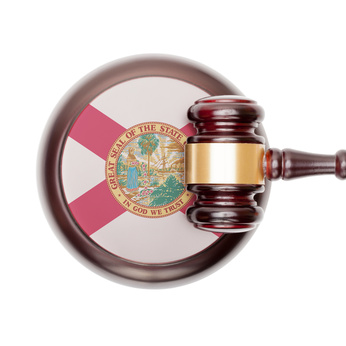The U.S. Court of Appeals for the Seventh Circuit recently held that a bank’s relationship with a software services company, under which the software services company required its customers to use the bank for the depositary services ancillary to the software, did not violate anti-tying provisions of the federal Bank Holding Company Act, at 12 U.S.C. § 1972. A copy of the opinion McGarry & McGarry, LLC v. Rabobank, N.A. is available at: Link to Opinion. A bankruptcy trustee hired an administrative services company to provide a variety of services in a bankruptcy proceeding. Among other things, the administrative services…
Posts tagged as “Banking”
The U.S. Court of Appeals for the Seventh Circuit recently held that the presence of capital as one of six components in the FDIC’s CAMELS rating does not mean that the rating as a whole is committed to agency discretion for the purpose of 5 U.S.C. §701(a)(2) and therefore unreviewable. A copy of the opinion in Builders Bank v. FDIC is available at: Link to Opinion. As you may recall, the FDIC is charged with conducting a full-scope on site examination every 12-18 months of the banks whose deposits it insures. In June 2015, the FDIC examined a bank and…
The U.S. Court of Appeals for the Second Circuit recently rejected an interpretation of Spokeo that would preclude all violations of statutorily mandated procedures from qualifying as concrete injuries supporting standing. In so ruling, the Court held that some violations of statutorily mandated procedures might entail the concrete injury necessary for standing where Congress conferred the procedural right to protect a plaintiff’s concrete interests, and where the procedural violation presents a material “risk of real harm” to that underlying concrete interest. A copy of the opinion in Strubel v. Comenity Bank is available at: Link to Opinion. As you may…
The U.S. Court of Appeals for the Seventh Circuit recently held that a bank’s lawsuit against the husband of a debtor who had filed for bankruptcy did not violate the co-debtor stay because the husband’s credit card debts were not a consumer debt for which the debtor was personally liable. A copy of the opinion in Smith v. Capital One Bank (USA), NA is available at: Link to Opinion. A debtor filed for bankruptcy in 2011. During the course of the bankruptcy proceedings, a bank filed suit and obtained a judgment against the debtor’s husband on a credit card debt…
The U.S. Court of Appeals for the Seventh Circuit recently held that a bank that honored a counterfeit check was not entitled to reimbursement from the party who deposited the check, nor from the depositing party’s bank or the Federal Reserve. A copy of the opinion is available at: Link to Opinion. In 2013, an attorney received an email from a person who claimed she wanted to hire him to help her recover money that she said she was owed in a divorce proceeding. The purported ex-wife subsequently told the attorney that after retaining him, her ex-husband settled, and that…
11th Cir. Holds Bank’s Failure to Stop Theft of Deposit Funds Could Constitute ‘Aiding and Abetting’

The U.S. Court of Appeals for the Eleventh Circuit recently held that a noncustomer pleaded sufficient facts to bring state law negligence and fraud causes of action against a bank when a bank customer engaged in the fraud.
The U.S. District Court of the Central District of California recently dismissed a borrower's putative class action complaint against a non-bank that supposedly was the "true lender" for allegedly usurious student loans that were extended in the name of a bank.
The U.S. Court of Appeals for the Second Circuit recently confirmed that, in the Second Circuit, an arbitration agreement is no longer binding where the intent of the parties was to arbitrate with only a specific arbitrator and that arbitrator is unavailable. A copy of the opinion in Moss v. First Premier Bank is available at: Link to Opinion. The borrower took out payday loans from an online payday lender. The payday lender relied on banks to serve as middlemen to debit the customer’s account. Two banks each debited the borrower’s account for one payday loan. When the borrower applied for…
The U.S. Court of Appeals for the Fifth Circuit recently held that, although a bank had actual notice of an heir’s claim to her decedent father’s account funds, the bank’s compliance with the post-death affidavit provisions of California Probate § 13106(a) rendered the bank immune from liability for wrongful disbursement of the funds. In any event, the Court also held, the decedent’s surviving spouse who withdrew the funds had a probate claim that was statutorily superior to the heir’s claim. A copy of the opinion in Angelo v. Wells Fargo Bank is available at: Link to Opinion. Plaintiff heir’s father died…
The U.S. Court of Appeals for the Sixth Circuit recently affirmed a district court’s dismissal of a qui tam action alleging that a bank violated the federal False Claims Act when it certified that it had engaged in loss mitigation and sought FHA insurance payments on defaulted loans, holding that because the factual basis of the claim was publicly disclosed before suit was filed, only the government could pursue the action in its own name. A copy of the opinion in United States ex rel. ABLE v. U.S. Bank, N.A. is available at: Link to Opinion. The defendant bank participated in…
The U.S. Court of Appeals for the Seventh Circuit recently affirmed the dismissal of a breach of contract claim brought by a group of investors against a bank that purchased the assets of a failed bank in receivership, because there was no writing memorializing the alleged agreement, as required by the federal Financial Institutions Reform, Recovery and Enforcement Act (FIRREA) and the Illinois Credit Agreement Act (ICAA). A copy of the opinion in United Central Bank v. Davenport Estate LLC is available at: Link to Opinion. A bank extended loans to a group of real property investors in 2008 and also agreed…
The District Court of Appeal of the State of Florida, Fourth District, recently held that a lender cannot be held liable for its customer’s suicide because it does not have any special relationship with the customer that gives rise to a duty to prevent the customer’s suicide. A copy of the opinion is available at: Link to Opinion. The personal representative of the estate of a mentally ill decedent sued the decedent’s bank and its senior vice president for wrongful death. The amended complaint alleged that the decedent suffered from a type of severe anxiety that made him unable to…









